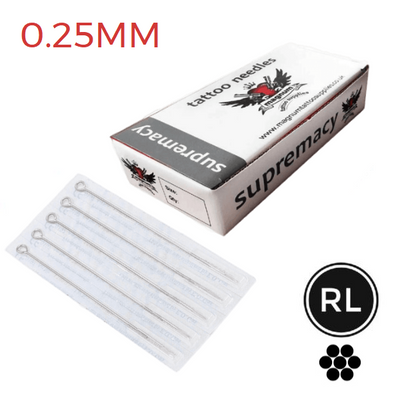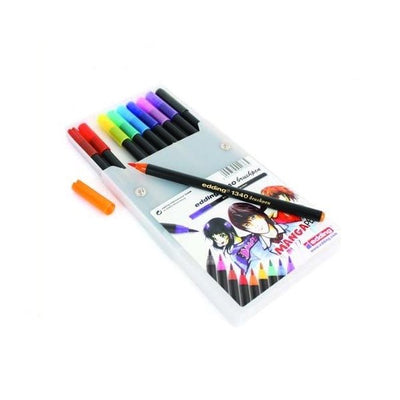Choosing a tattoo should never be a hasty decision. Tattoos are, after all, a form of self-expression that stays with you for life. But the problem is the process can be overwhelming. What style do I choose? What artist should I trust? Where should I place it on my body? What if I end up regretting it?
The risk of making a mistake often leaves potential tattoo enthusiasts with indecision, stuck between the desire for self-expression and the fear of getting it wrong. So in this guide, we aim to ease your journey into the tattoo industry, helping you avoid common pitfalls and confidently make choices you'll be proud of now and years later.
Importance of commitment in getting a tattoo
Getting a tattoo is no small decision. These artistic expressions, etched into your skin, become an inseparable part of you, representing a statement about who you are, what you value, or simply what you find beautiful or meaningful. It's a form of self-expression that allows individuals to wear their hearts, memories, beliefs, or passions on their sleeves, quite literally in many cases.

Yet the permanence that lends tattoos their significance also adds a layer of commitment that should not be taken lightly. Once you choose, it stays with you, a constant companion on your skin.
Yes, tattoo removal exists, but it's a lengthy, expensive, and often painful process that doesn't always guarantee complete erasure. Hence, a tattoo should never be an impulse decision; it requires thought, consideration, and, above all, understanding of the commitment involved.
Part of this commitment is ensuring your body art heals properly and maintains its vibrancy over time. So proper tattoo aftercare is crucial to the longevity and appearance of your tattoo. So, once you've decided to get a tattoo, ensure you're prepared to follow through with the necessary aftercare to keep your new ink looking its best.
Step 1: Finding inspiration
The first step in choosing a meaningful tattoo design is deciding what to get. If you're going to get creative, there are several factors to consider. For those who already have tattoo ideas in mind, it's typically a good idea to have an artist give a second opinion and then put a unique twist on the design.
Draw inspiration from your favourite things
Quotes, phrases, or lyrics are popular choices for tattoos. They offer the freedom to choose from various font styles and sizes. If you're feeling stumped, consider drawing inspiration from old songs, saved cards, or specific sayings or mottos shared by friends and family.
Tattoo magazines, artwork, and even your favourite movies can also serve as sources of inspiration.
Step 2: Selecting a professional tattoo artist
Once you have decided on the type of tattoo you want, choosing a good tattoo artist is the next step. While most tattoo artists are adept at tattooing the basics, some are more skilled than others, especially in certain techniques such as portraits, fine art or geometric work.
Check out their portfolio, read reviews, and visit their studio to ensure it's clean and professional. Don't be afraid to ask questions about their experience, techniques, and hygiene practices.

If you are also unsure of your tattoo idea, you may also want to ask the artist to see their books of work for ideas. Artists usually have sketchbooks with many designs they've drawn that they would love to tattoo on prospective clients.
Step 3: Deciding on the placement of your tattoo
The location of your tattoo is another important factor to consider. If you prefer your tattoo designs to be seen, your fingers, arms, legs, chest, or back are all places to consider.
For those who aren't sure, a small tattoo is a good place to start. If you're worried about the pain, some locations are less painful than others. Avoid the ribs, elbow, and top of the foot, as well as the inner arm area, such as the inner elbow, if you have a low pain tolerance.
Remember, placement is key, but it's not set in stone. If you're unsure or want to change the placement after the stencil has been applied, products like the AloeTattoo Stencil Eraser can be used by your artist to remove the stencil from your skin. The design can then be reapplied to help you find the perfect spot for your new tattoo.
Step 4: Considering the ink
For those concerned about the type of ink being placed permanently into their bodies, vegan ink is worth looking into, like the World Famous - True Black. Although widely available, it is important to double-check with your artist beforehand that the ink they use is vegan.
Non-vegan tattoo inks get their colour from ingredients such as bone char to insect parts. If a vegan tattoo experience is essential to you, make sure also to confirm that the supplies used by the tattoo shop are vegan as well.
Step 5: Prepare for the tattoo session
Before your tattoo session, make sure you're well-rested and hydrated. Avoid alcohol, as it can thin your blood and lead to excessive bleeding during the tattoo process. Wear comfortable clothing and bring a snack if you get a large tattoo, which can take several hours.
Step 6: Taking care of your tattoo
Fading is also something to consider before deciding on a tattoo location. Finger tattoos and mouth tattoos are the most prone to fading, but over time most tattoos will fade at least a little, especially if they are subjected to sweat, sun, or friction. If you are worried about a tattoo fading in the future, use a product like the MTS Tattoo Balm and try to keep your skin moisturised.
Step 7: Touch-up if needed
Once your tattoo has fully healed, you might notice that some areas may need a touch-up. This is normal, especially for other tattoos with a lot of colour or detail. Schedule a touch-up appointment with your artist if needed.

What to expect during the tattoo session
Yes, getting a tattoo does hurt. The pain level can vary based on the location of the tattoo. Areas where the bone is closer to the skin surface, such as the head, neck, knees, and spine, are generally more painful.
The tattoo artist will prepare your skin by shaving the area and disinfecting it. The tattooing process could take hours, depending on the size and detail of your design, so be prepared for a long session.
Conclusion
Choosing a new or your first tattoo is a significant decision that requires careful thought and planning. It's not just a matter of picking a tattoo style you like. So, with this step-by-step guide to choosing your new tattoo, you can navigate this process effectively and choose a tattoo you'll love and cherish for a lifetime.
Remember, tattoos are a lifelong commitment, so take your time, do your research, and make sure your choice is one you'll be happy with for the rest of your life.



























































 Studio supplies
Studio supplies












 Power & batteries
Power & batteries








 Aftercare
Aftercare





















 Apprentice
Apprentice


 Piercing & jewellery
Piercing & jewellery







 PMU supplies
PMU supplies




 New arrivals
New arrivals
 Gift vouchers
Gift vouchers
 Shop all
Shop all















































